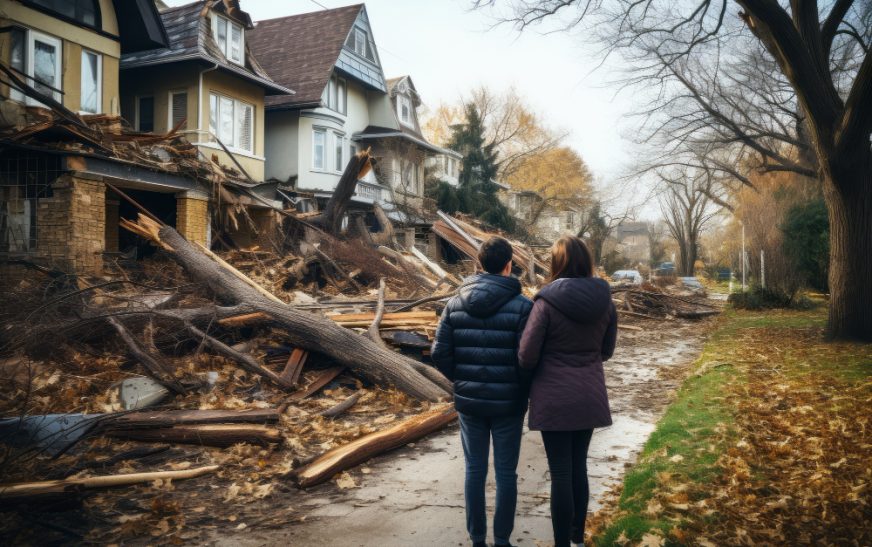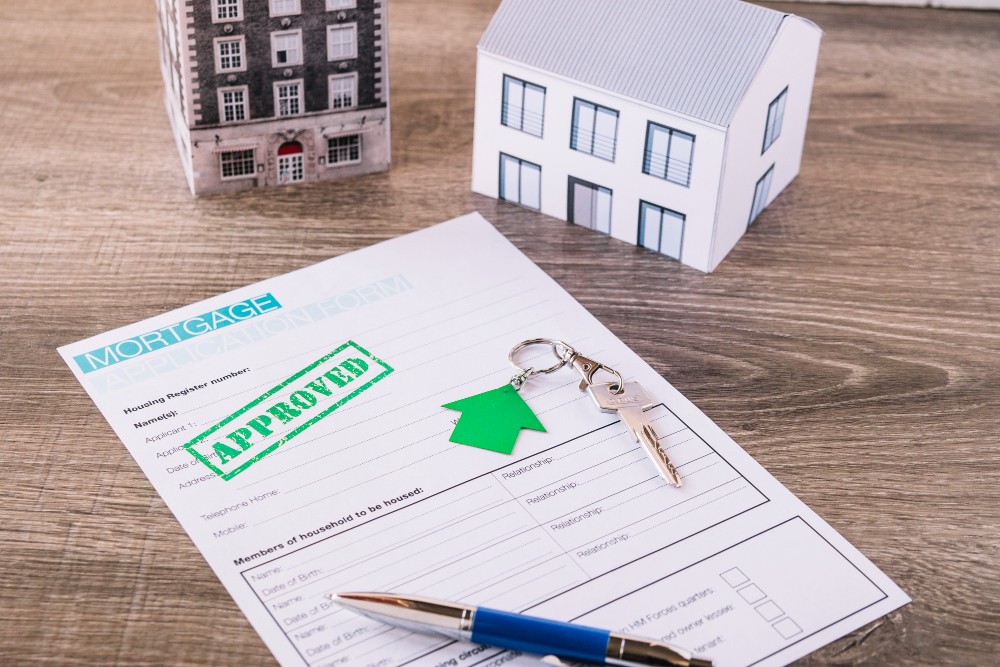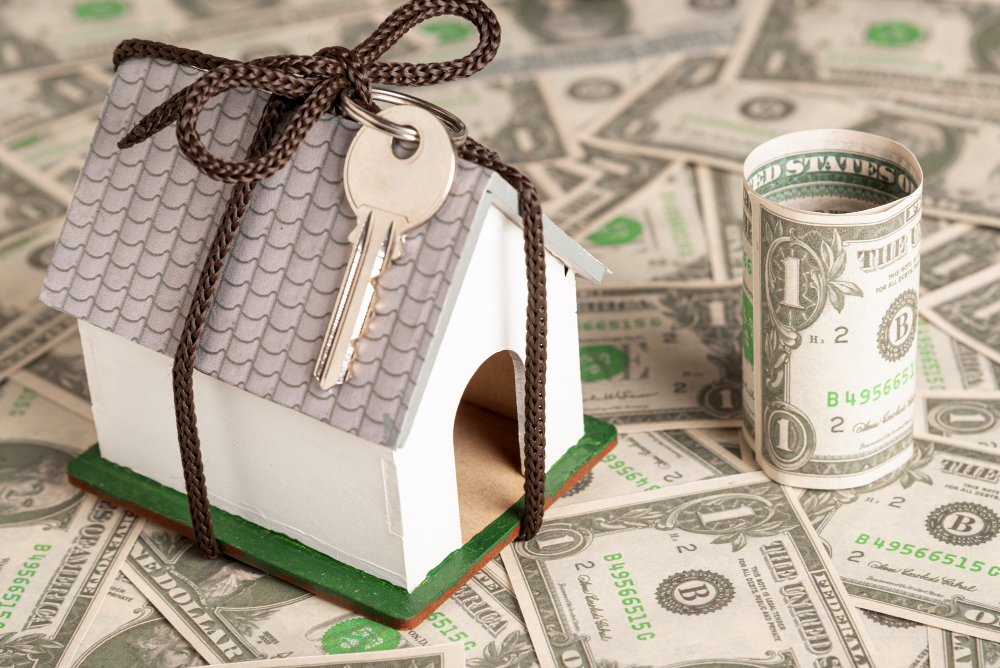Natural disasters such as hurricanes, earthquakes, floods, wildfires, and tornadoes can strike without warning, causing devastating damage to homes and properties. While we can’t control when or where these events occur, we can prepare for them by ensuring that our homes are adequately protected with the right insurance coverage. In this comprehensive guide, we’ll explore the importance of adequate home insurance coverage for all types of natural disasters and provide tips for navigating insurance options to safeguard your home and belongings.
Understanding the Risks
Natural disasters come in many forms, each presenting unique risks to homeowners. Here’s a brief overview of some common natural disasters and the risks they pose:
- Hurricanes: High winds, heavy rain, storm surges, and flooding can cause extensive damage to homes, including roof damage, structural issues, and water intrusion.
- Earthquakes: Seismic activity can lead to structural damage, foundation problems, and property destruction, posing significant risks to homes located in earthquake-prone areas.
- Floods: Rising water levels from heavy rainfall, storm surges, or overflowing rivers can inundate homes, causing water damage, mold growth, and destruction of personal property.
- Wildfires: Fast-spreading wildfires can engulf homes in flames, leading to total property loss, smoke damage, and destruction of landscaping and outdoor structures.
- Tornadoes: Violent windstorms can tear roofs off homes, topple trees, and demolish structures, causing widespread devastation in their paths.
Importance of Home Insurance Coverage
Home insurance serves as a financial safety net, providing homeowners with protection against the financial losses associated with natural disasters and other covered perils. Here are some key reasons why adequate home insurance coverage is essential:
- Property Protection: Home insurance policies typically cover the cost of repairing or rebuilding your home if it’s damaged or destroyed by a covered event, such as a natural disaster. This can help alleviate the financial burden of rebuilding your home from scratch.
- Personal Belongings Coverage: In addition to covering your home’s structure, home insurance also provides coverage for your personal belongings, such as furniture, clothing, electronics, and other valuables. If your belongings are damaged or destroyed in a natural disaster, your insurance policy can help cover the cost of replacing them.
- Additional Living Expenses: If your home becomes uninhabitable due to damage from a natural disaster, your home insurance policy may provide coverage for additional living expenses, such as temporary housing, meals, and transportation while your home is being repaired or rebuilt.
- Liability Protection: Home insurance policies typically include liability coverage, which can protect you financially if someone is injured on your property or if you accidentally damage someone else’s property. This coverage can help cover legal fees, medical expenses, and settlement costs in the event of a lawsuit.
Navigating Home Insurance Options
When it comes to protecting your home against natural disasters, it’s essential to understand your insurance options and select the right coverage for your needs. Here are some key factors to consider when navigating home insurance options:
- Policy Coverage Limits: Review your home insurance policy to understand the coverage limits for your dwelling, personal property, and additional living expenses. Make sure your coverage limits are sufficient to rebuild your home and replace your belongings in the event of a total loss.
- Deductibles: Consider the deductible amount on your home insurance policy—the higher your deductible, the lower your premium. However, make sure you choose a deductible that you can afford to pay out of pocket in the event of a claim.
- Special Endorsements or Riders: Depending on your location and specific risks, you may need to purchase additional coverage or endorsements for natural disaster-related perils such as earthquakes, floods, or hurricanes. Review your policy to determine if you need these extra coverages.
- Exclusions and Limitations: Understand any exclusions or limitations in your home insurance policy regarding natural disasters. For example, some policies may exclude coverage for flood damage, requiring you to purchase a separate flood insurance policy through the National Flood Insurance Program (NFIP) or a private insurer.
- Discounts and Savings Opportunities: Take advantage of any discounts or savings opportunities offered by your insurance company. For example, you may be eligible for discounts for having a home security system, installing storm shutters, or bundling your home and auto insurance policies with the same insurer.
FAQs
- Does my standard home insurance policy cover damage from natural disasters?
Standard home insurance policies typically cover damage from certain natural disasters, such as windstorms and hail. However, coverage for other perils like floods and earthquakes may require separate policies or endorsements. Review your policy carefully to understand what is and isn’t covered.
- How can I determine if I need additional coverage for specific natural disasters?
Assess the natural disaster risks in your area by researching historical data and consulting with local authorities or insurance agents. If you live in a high-risk area for floods, earthquakes, wildfires, or hurricanes, consider purchasing additional coverage or endorsements to protect against these perils.
- What is the difference between replacement cost and actual cash value coverage?
Replacement cost coverage pays to repair or replace your home or belongings at today’s prices, without deducting for depreciation. Actual cash value coverage, on the other hand, takes depreciation into account, meaning you’ll receive less money for older items. Replacement cost coverage is typically more expensive but provides better protection.
- How can I lower my home insurance premiums without sacrificing coverage for natural disasters?
There are several ways to lower your home insurance premiums while still maintaining adequate coverage. These include raising your deductible, bundling your policies with the same insurer, improving home security measures, and taking advantage of available discounts.
- Is flood insurance required for homeowners in flood-prone areas?
While flood insurance is not typically required by law, mortgage lenders may require it if your home is located in a high-risk flood zone. Even if you’re not required to purchase flood insurance, it’s a wise investment to protect your home and belongings from flood damage.
- What should I do if my home is damaged by a natural disaster?
If your home is damaged by a natural disaster, contact your insurance company as soon as possible to file a claim. Take photos of the damage and make temporary repairs to prevent further damage. Keep records of all expenses related to the damage and cooperate fully with your insurance company’s claims process.
- Can I make changes to my home insurance policy after a natural disaster occurs?
In some cases, insurance companies may restrict policy changes or cancellations immediately following a natural disaster to prevent fraud. However, once the situation stabilizes, you can work with your insurer to make any necessary adjustments to your policy, such as increasing coverage limits or adding endorsements for additional protection.
- What should I do if I have trouble obtaining home insurance coverage due to my home’s location or history of claims?
If you have difficulty obtaining home insurance coverage due to your home’s location in a high-risk area or a history of claims, you may need to explore alternative options such as specialty insurers, state-run insurance pools, or surplus lines insurance. An experienced insurance agent can help you navigate these options and find coverage that meets your needs.
Conclusion
Navigating natural disasters requires careful planning and preparation, including ensuring that your home is adequately protected with the right insurance coverage. By understanding the risks posed by natural disasters, recognizing the importance of home insurance coverage, and navigating your insurance options effectively, you can safeguard your home and belongings against the financial losses associated with these unpredictable events. Don’t wait until disaster strikes—take proactive steps today to protect your home and family with adequate home insurance coverage.


















